Getting into the National University of Singapore is not just an academic challenge — it’s also an opportunity to become part of a global professional network. How can you prepare and stand out among thousands of applicants? In this article, NUS alumni share their experiences — from choosing a university to application strategies and studying there — along with valuable tips for future applicants.
Almat Akhmatolla, 34, Astana, Deputy director, linkedin

On choosing a university
My journey toward studying abroad began with a long list of universities, but I narrowed it down to three: in Canada, the U.S., and Singapore. A key factor was living conditions for my family — my spouse and our three children. We were planning to move together, and it was supposed to be not just an education for me, but a cultural exchange for the whole family.
My first choice was the U.S. — a Master of Law program. But then I received an interview invitation from the National University of Singapore — Lee Kuan Yew School of Public Policy, for a Master in Public Administration program.
Two years prior, I had been selected for the first cohort of Kazakhstan’s Presidential Youth Personnel Reserve — a social elevator for young professionals ready to contribute to the country. Studying at one of the world’s best universities felt like a continuation of that mission — to see the system we look up to from the inside.
Even more, the university offered a grant from the Li Ka Shing Foundation, which fully covered tuition and included a monthly stipend.
On applying
Unlike most programs focused on academic achievements and test scores, the NUS Master in Public Administration targets professionals. The average experience of participants is about 12 years — including diplomats, military officers, finance experts, economists, and specialists in healthcare and education. It was essential not only to show strong academic qualifications but also to demonstrate how your career aligns with global priorities and the kind of impact you can make.
I applied to the program twice — others got in on their third or fourth attempt. This shows how competitive the process is and how important it is not just to “submit an application” but to do so at the right time with the right story — when you're truly ready for education at this level.
On studying
At the Lee Kuan Yew School, you quickly realize that studying here is not just about lectures and exams. It’s a competitive environment — but ethical and professional. This is especially evident among Singaporean students, who made up about 30% of our cohort. They can be called “machines” in the best sense: organized, strategic thinkers with excellent teamwork skills. One night, a professor sent an assignment — and within half an hour, Singaporean students were already messaging to form teams.
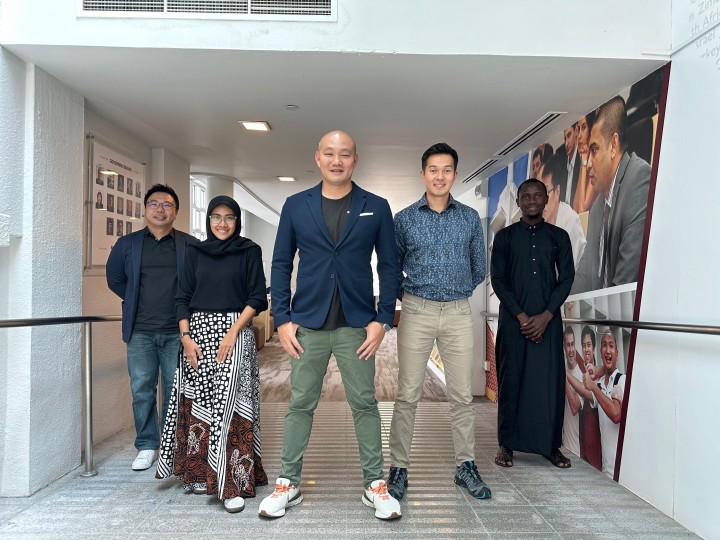
You build your own learning path here — choosing courses, working in teams, and taking responsibility for your progress. Independent work, meaningful feedback from professors, and an open but demanding academic environment help shape a completely new way of thinking.
The grading system is also thoughtfully designed: your score depends not only on your own performance but on the strength of the entire group. The stronger the group — the harder it is to get a top grade. But this makes the process fair and motivating.
The university and the Lee Kuan Yew School do everything to ensure graduates not only complete the program but also apply their knowledge in real life. Career fairs, networking sessions, personal development courses — all of this helps you build your path. We were taught how to build a LinkedIn profile, pass interviews, and present ourselves. There were mock interviews with detailed feedback — incredibly valuable, especially for those who haven’t job-hunted in years.
But the most important thing is the people. Your classmates become part of a global network you can always turn to. Economists from Africa, diplomats from Europe, civil servants from Southeast Asia — they offer a different view of the world and broaden your perspective. That’s what makes NUS valuable — not just as a degree, but as a community.
Recommendations
Applying is not so much about perfect documents as it is about honesty. A common mistake is to embellish. Be honest — that’s my main advice.
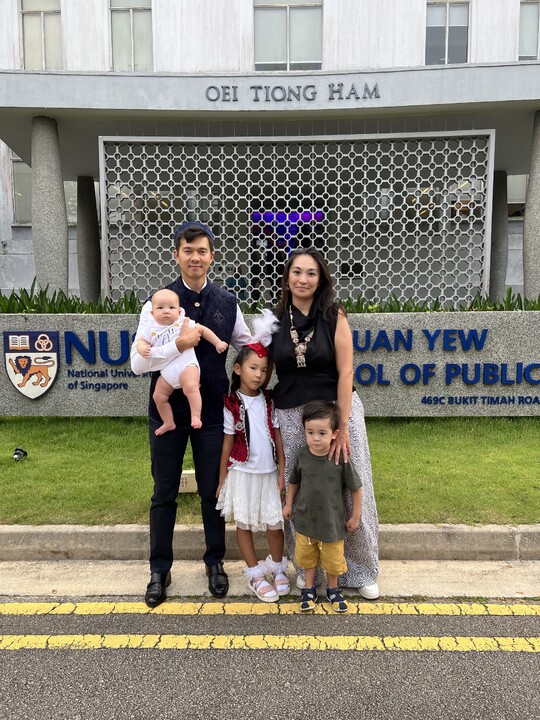
Among books, I recommend From Third World to First by Lee Kuan Yew — it offers a fundamental understanding of Singapore. From faculty publications — Refreshing the Singapore System by Terence Ho and The Evolution of the Asian Developmental State by J.J. Woo. These help you understand the school’s language and context — which is crucial.
It’s also important to understand: competition at NUS is extremely high, especially in academic programs. Many students study 12-16 hours a day, practically living in the library. The pressure can lead to emotional and physical exhaustion — some even fainted from overwork. At the same time, the university takes mental health seriously, offering counseling, psychological support, and stress-reduction events.
Nurlan Muratbek, 25, Astana, Senior Analyst at DESHT, linkedin
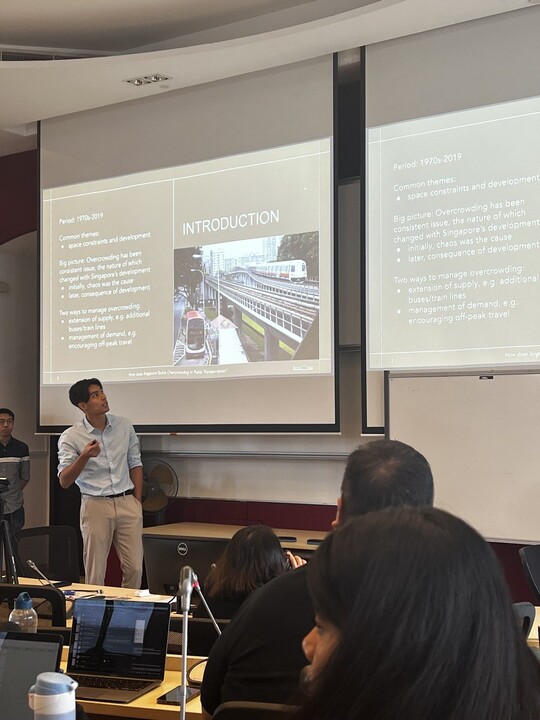
On choosing a university
The National University of Singapore is one of the world’s leading universities. At the time I applied, the public policy program at the Lee Kuan Yew School was ranked in the top 4 globally by the QS World University Rankings. I was aiming for a world-class education, and NUS became the obvious choice.
Singapore’s development experience felt more relevant and applicable to Kazakhstan. Another motivation was the fact that many Kazakh civil servants had studied there as well.
On applying
The application process was fairly standard: a motivation letter, recommendations, an application form, and so on. One advantage was that tests like the GMAT were not required. The main challenge was the motivation letter — it consisted of two questions, 400 words each. I spent a long time writing the first answer, and rushed the second one. To avoid stress, I suggest drafting your answers early and improving them over time. Don’t wait for a “perfect” version — spoiler: your final text probably won’t feel perfect either.
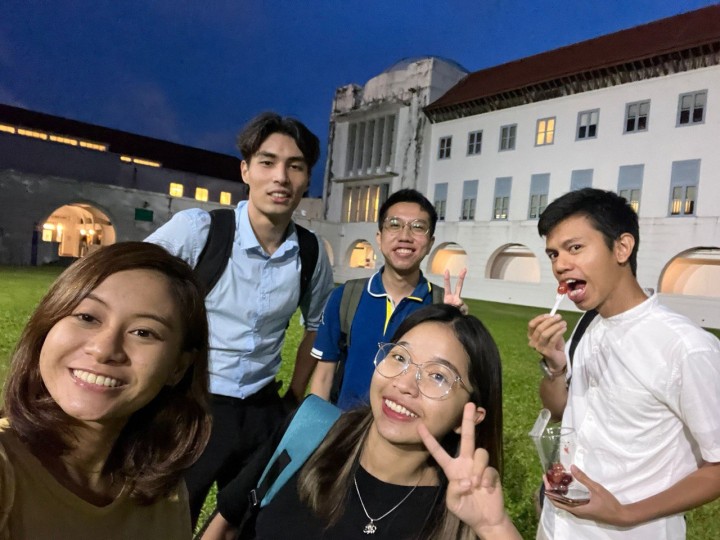
Another tip — share your essays with people who study at top universities or with professors. At Nazarbayev University, I had easy access to such feedback, but if that’s not your case — don’t hesitate to reach out to people on LinkedIn.
Master’s programs are generally divided into academic and professional tracks — the latter are designed for working professionals looking to deepen their expertise. The program I applied to required two to five years of work experience. That was a key requirement.
However, grades, recommendations, achievements, and essays were also important. I believe my limited work experience was balanced out by strong academic performance, debate experience, and solid recommendations. All components of the application are evaluated as a whole — your strengths can offset your weaknesses.
On studying
First, the program was practical. It’s tailored for professionals, and the knowledge can be applied immediately.
Second, there was a strong involvement of practitioners: classes often featured civil servants, ministers, corporate managers, and representatives of international organizations.
The grading system surprised me: only 20% of students could receive an “A.” In a group full of ambitious and experienced people, this meant intense competition and full dedication.
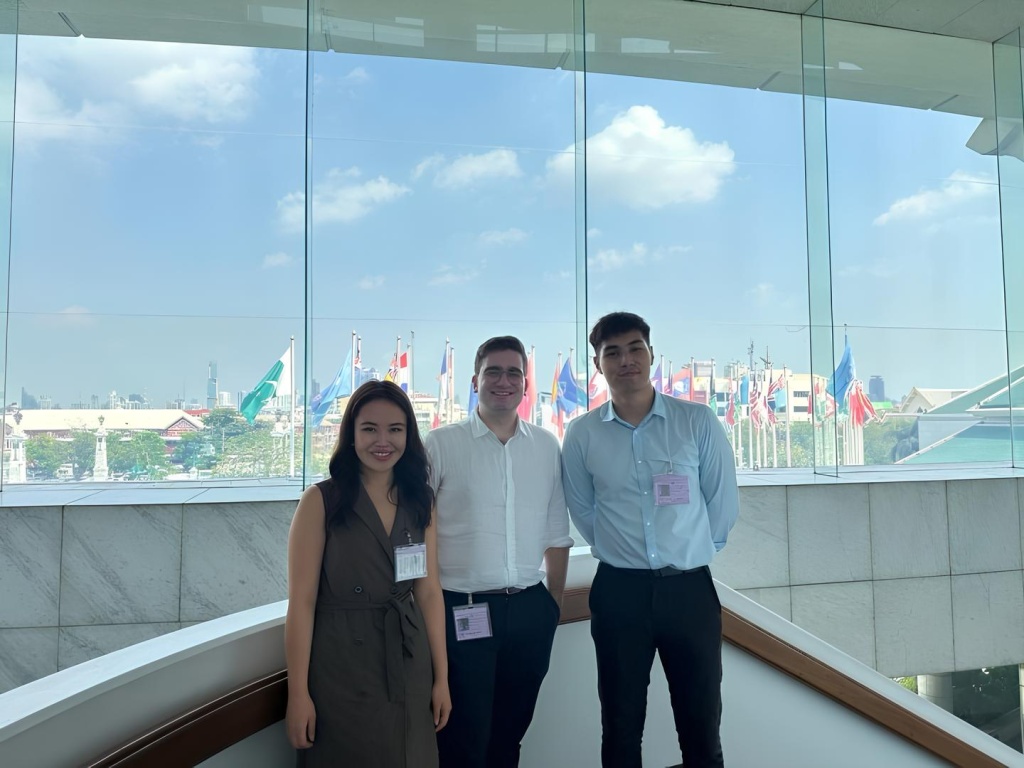
The professors were among the best in the world. There were extra sessions with teaching assistants, and the professors themselves were always open to conversation.
The university provided everything needed for a comfortable learning process: access to resources, modern classrooms, and a well-equipped library.
I was especially impressed by the career support. From the beginning, the career center organized workshops, meetings with HR professionals, lectures, and alumni networking events. These activities took place nearly every week.
Recommendations
An NUS degree is highly valued in Singapore and abroad, especially in Southeast Asia. In some countries, like the UK, NUS graduates can even qualify for a simplified visa process.
Good academic performance is just the baseline. To stand out among thousands of candidates with similar achievements, you need to thoroughly research the university you’re applying to.
Then, align the university’s features with your own goals. Explain why you are the ideal candidate and what you can contribute to the academic environment. Show that you’ve done your homework.
It’s a time-consuming process, which is why I support the “less, but deeper” approach: it’s better to apply to fewer universities but with well-prepared, personalized applications.
Suyuna Dadybaeva, 26, Geneva, Project Analyst, United Nations Institute for Training and Research HQ, linkedin
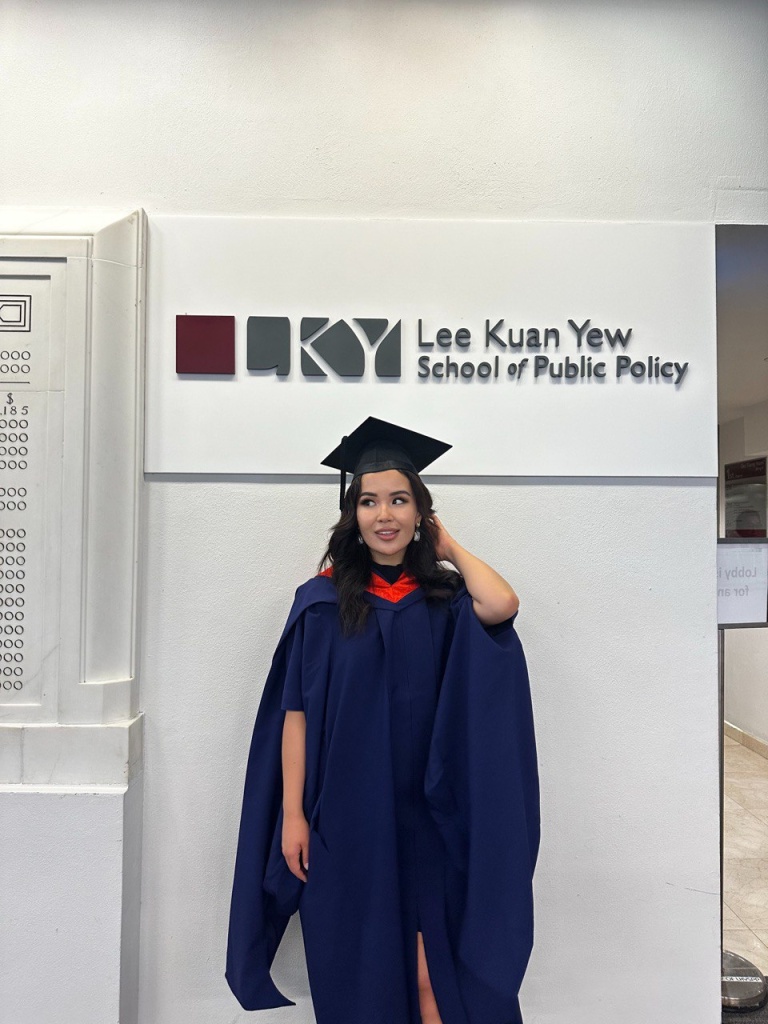
On choosing a university
I applied to four universities across three continents: George Washington University, the University of Toronto, the London School of Economics, and the National University of Singapore.
I was accepted into all of them, but I chose NUS for several reasons. First, I was deeply inspired by the books of Lee Kuan Yew, especially From Third World to First, which sparked my interest in public policy during my undergraduate studies. Second, the NUS program is two years long, intensive, and includes a capstone project instead of a traditional thesis — an ideal format for practitioners. Third, at the time of admission, NUS ranked in the global top 20, and a year later — in the top 10. Fourth, Singapore was always a place I dreamed of living and studying in. And finally, I was offered a full scholarship that covered tuition, accommodation, flights, insurance, and other expenses.
On applying
The deadline was in December, and I submitted my application on the last day. That year, the application fee for my program and the Lee Kuan Yew School was waived — a pleasant surprise. The application package was standard: diploma, transcript, IELTS or TOEFL, CV, two motivation essays, and two recommendation letters. The hardest part was proving relevant experience — I had less than two years of internships and online projects, while the requirement was two to five. Also, convincing professors to write recommendation letters in a couple of days was a challenge in itself!
NUS looks not just for straight-A students, but for individuals with leadership potential and a commitment to public service. Important factors include your degree, high level of English, work experience, and involvement in extracurricular, civic, or professional initiatives. While grades matter, motivation essays and recommendation letters often play a decisive role. They value maturity, initiative, and a sense of responsibility.
I took the IELTS in advance — prep time was minimal: I watched YouTube videos, did a free online test, and scored 8.5. GMAT and GRE weren’t required.
On studying
Studying at NUS is a marathon with sprint intervals. The competition is intense: even students in their 30s aim for top results. I completed my undergraduate degree at the University of Central Asia in Kyrgyzstan and immediately noticed the difference. Our group had 70 students instead of the usual 15, daily reading assignments of 50-100 pages per subject, and three-hour lectures and seminars. The elective and specialization system is flexible — you can tailor your schedule, but it demands strong self-discipline. I was impressed by the atmosphere of freedom and responsibility: no one reminds you of deadlines — it’s all on you.
A major advantage is the exchange programs with top global universities. I spent a semester at the University of Toronto, gaining a Western perspective on public policy and expanding my network. In Singapore, there were frequent meetings with ministers, presidents, and international experts. During our studies, Shavkat Mirziyoyev, Kyrgyzstan’s Deputy Prime Minister Edil Baisalov, and the ASEAN Secretary-General all visited. Singapore’s President Tharman Shanmugaratnam personally attended our graduation ceremony.
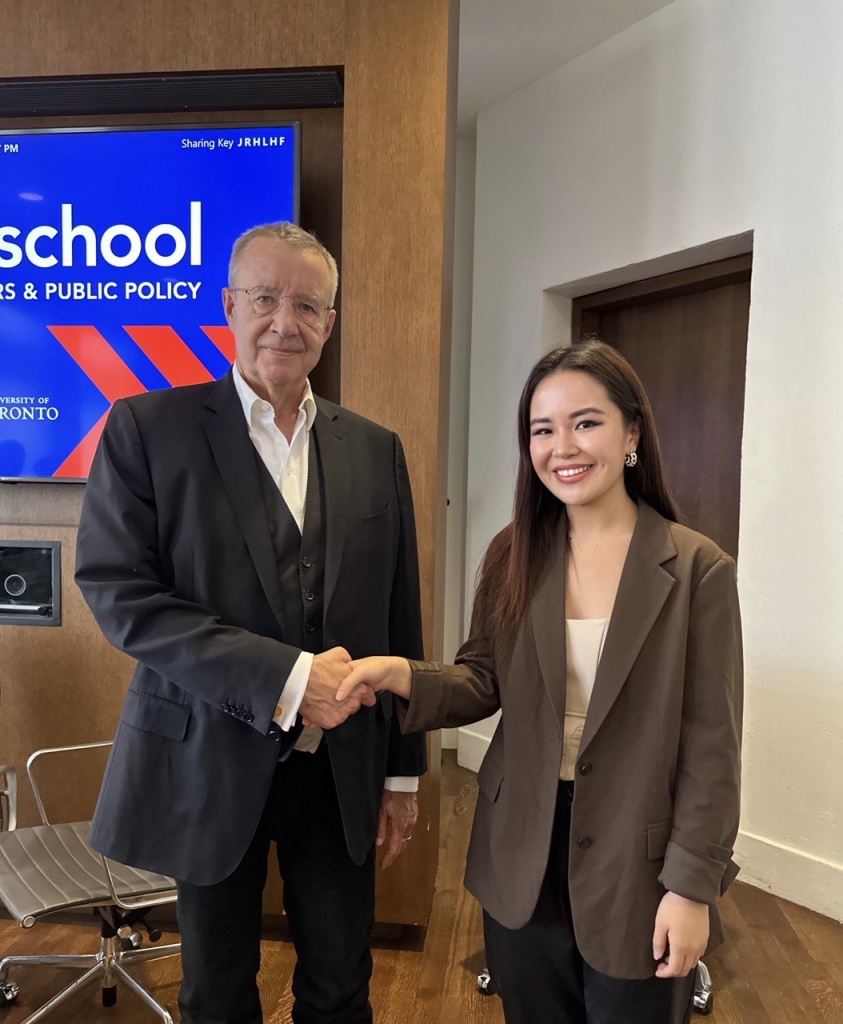
Grading is modular, with a scale from A+ to F and GPA based on a 5-point system. For scholarship recipients, the minimum GPA requirement is 4.0. Feedback is provided via LMS, especially for policy briefs and the final group project. Instead of a classic thesis, students complete a Policy Analysis Exercise: working with a real client, data analysis, field research, and defending recommendations. Our team worked with UNDP, studied barriers to microfinancing in Thailand, traveled to Bangkok, spoke with experts from the National Bank and other institutions, and presented our findings to both professors and the client.
Students have access to an extensive library, databases, and academic journals. The Lee Kuan Yew School has its own career center and holds annual job fairs featuring the ADB, World Bank, UN, top consulting firms, and international organizations.
Recommendations
An NUS degree is a global passport: the university is ranked in the world’s top 10, it’s respected by employers, and it can help you qualify for golden visas in the UK or UAE if you’re planning an international career. And of course — the network. My classmates now work in governments, international organizations, and businesses around the world.
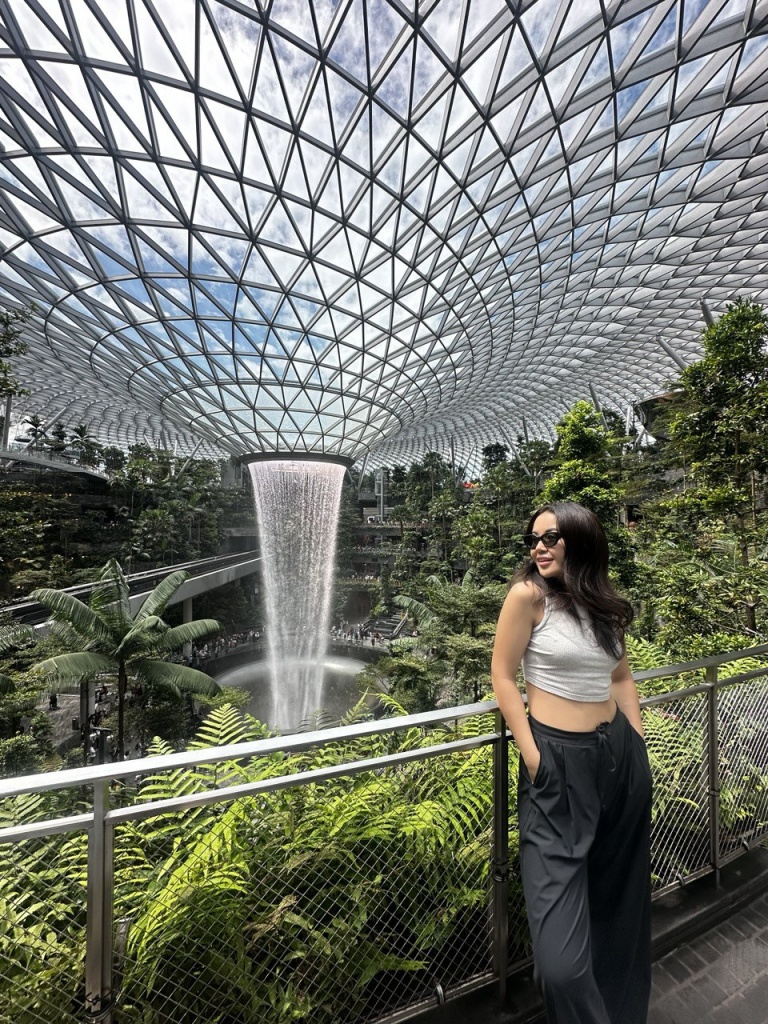
Prepare in advance, reach out to alumni and professors for guidance, and invest time in your motivation letters — they’re your calling card. I know a girl who spent 48 hours on one letter and got into Brown University. Find your niche and show the admissions committee that you’re the future expert in that specific area. Even if you use AI, your story must feel alive and personal — admissions officers can sense templates a mile away. Add emotion and logic: your résumé + their program = win-win.
Don’t overlook universities in Southeast and East Asia — there are many top schools and scholarships here. Use your regional identity as an asset: Central Asia is a region with untapped potential, and your uniqueness can be your strength. We’re underrepresented on the global stage — and that works in our favor. Don’t be afraid to position yourself as a future regional leader — Central Asia is growing faster than many other regions and needs educational investment.